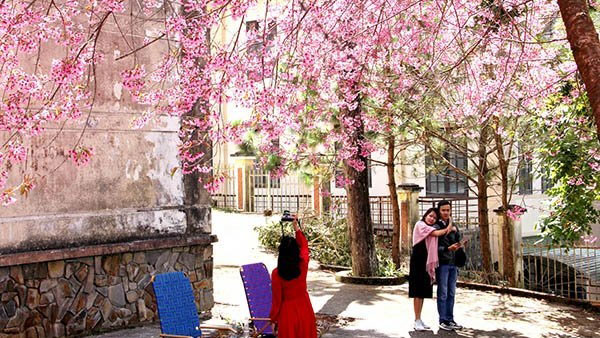


|
Youngsters pose for a photo under prunus cerasoides cherry trees (credit: nhandan) A ceremony will be held at Sacom Resort, on the peninsula
of Tuyen Lam Lake, to kick off the festival and to announce the recognition
of Tuyen Lam National Resort and Da Lat city as ASEAN Environmentally
Sustainable City, at 8:30 am on January 27.
A series of events will take place across the city during
the three-day festival, including art performances, musical fountain shows, a
golf tournament, a Gong music night and an exhibition of classic cars.
The festival aims to promote the local prunus cerasoides
cherry tree known as the city’s floral emblem. The flower blooms in pink in
the first months of the year to welcome the spring. The trees mostly grow in
Da Lat city and forests in Lac Duong district.
"I have never seen cherry blossom as beautiful as this
year. The flowers started to bloom at the beginning of January and in such
cool weather, they will last until early February,” said Nguyen Xuan Thanh,
Director of the Tuyen Lam National Resort and head of the festival organising
board.
Da Lat was honoured with the ASEAN Environmentally
Sustainable City title at the ASEAN Environmental Award in Brunei in July
last year.
|
Source: NDO